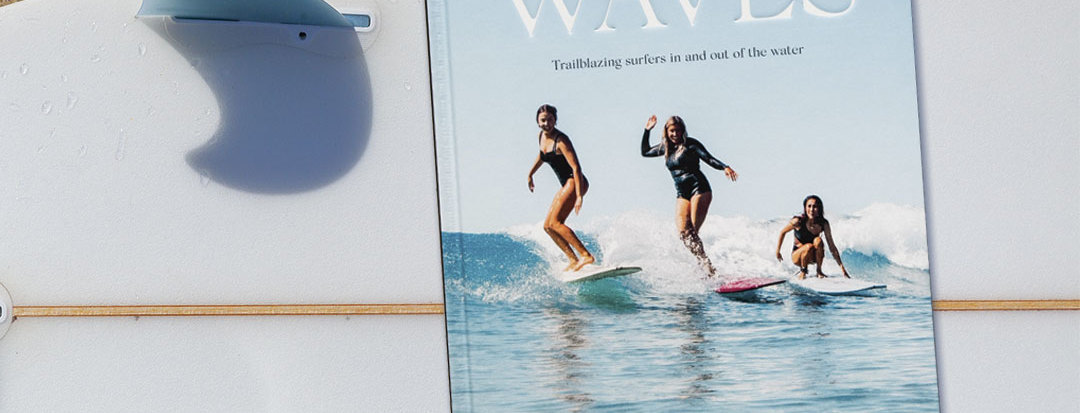
As Surfrider activists and volunteers, we know that sharing our stories can be a powerful means of connecting with our communities, decision-makers, and each other. Today, we're excited to introduce you to a Surfrider supporter and storyteller whose new book is contributing to our mission — creative director, stylist, mom of 3 boys, and author of Women Making Waves: Trailblazing Surfers In and Out of the Water, Lara Einzig. Through sales of her book, Lara is helping to support Surfrider's mission to protect clean water and healthy beaches for all people, by donating a portion of proceeds from every book sold.
Women Making Waves is an elegantly told and photographed collection of stories, collected and released by passionate women dedicated to shining a light on the authentic stories of women in the surfing community. “I’m really proud to say that Women Making Waves is an all-female production,” said Lara of the project. “From the publishing team at Penguin Random House to all of the contributors and photographers, it was my mission from the outset to ensure this book was purely told from the female lens.”
We recently had the opportunity to speak with Lara about the process of collecting the stories told in Women Making Waves — from World Champion surfer Steph Gilmore to Dr. Natalie J. Greenhill of Surfrider's Board of Directors — and her motivation for supporting Surfrider's mission both in her daily life and through the platform of Women Making Waves. Check out our interview with Lara, below!
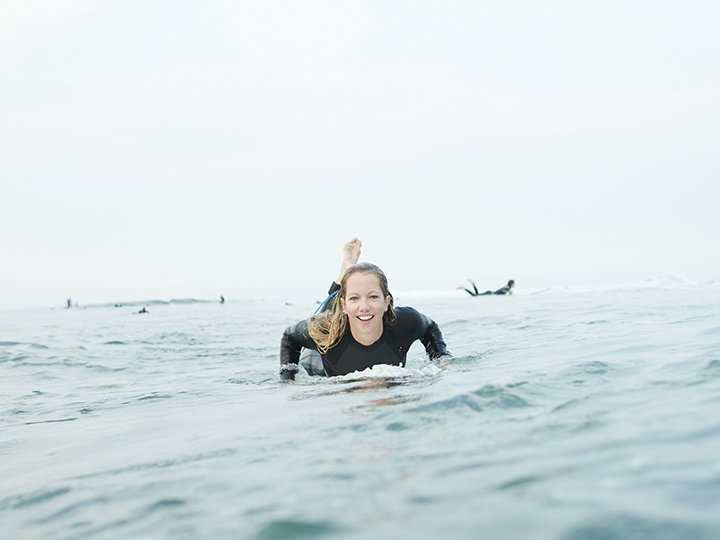
Women Making Waves features women in so many walks of life, with such different backgrounds despite the similarities in their relationships with the ocean and surfing. How did the women in this book come into your life, or how did you decide upon this specific assortment of stories to tell?
It was important to me to have interesting and inspirational stories to tell first and foremost and I had a criteria for the types of women to profile. Firstly, I wanted a fully diverse mix of real women - ethnicity, religion, age, shape, view points. I wanted to tell stories about adversity and triumph, hope and healing. And importantly, the women needed to be living a life of purpose and trailblazing their way in and out of the water. I approached most of the women directly via social media or email and then had several friends and contacts connect me with others - I must have asked for hundreds of favors to make this book happen! But as I suspected, the surf community was so ready for this book, everyone was so responsive and positive.
In the book you talk about growing up near the coast and spending a lot of time on the beach — what would you say about the book to people who have had a different experience, and how it might relate to or resonate with them?
This book is for everyone, women and men alike, and you don’t have to be a surfer or have grown up on the coast to enjoy it. As our hard-won equality is severely under threat, we need women’s stories and words of resilience, empowerment, inspiration and hope now more than ever. Hopefully these stories resonate with all women and girls.
My personal journey was fuelled by grief and surfing allowed me to be engulfed in nature. From here I learned the powerful healing properties of nature and that’s not exclusive to the ocean. Any connection to nature can be transformative if you can find access to it.
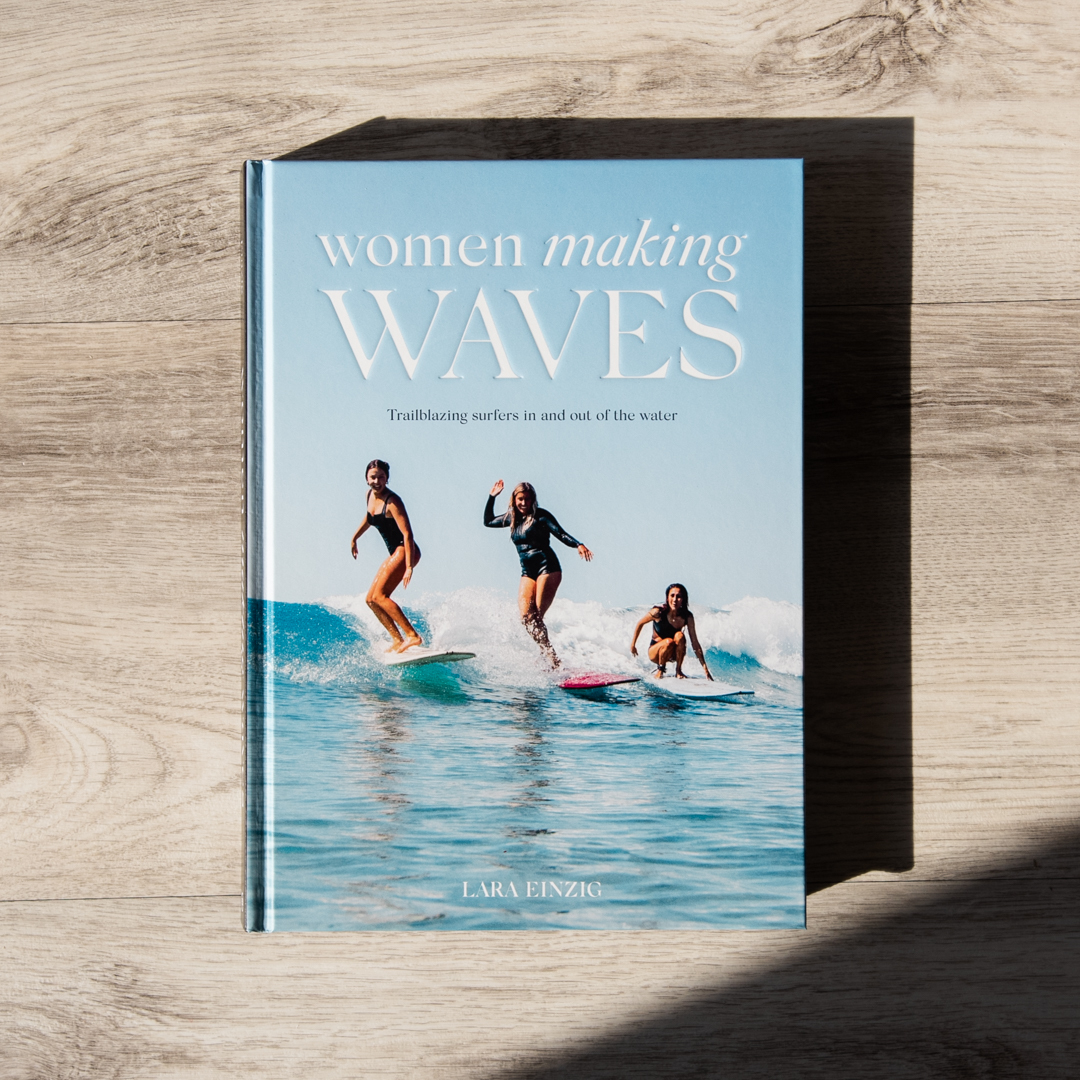
Surfrider is thrilled to be a beneficiary of Women Making Waves. How did you choose Surfrider to support through sales of your book, or why is it important to you to support our mission in connection with the book?
When you’re a surfer, you become a steward of the sea and you have a front row seat to the destruction of our environment. Surfriders mission to protect the oceans and beaches was shared directly or indirectly with all of the women involved in this book and I knew it was an organization that I could also work with locally - it wasn’t just about a non-profit badge of honor, I’m now part of an incredible community in my local LA chapter and it feels really great to be of service and protect what I love. It’s a big win when you can figure out how to turn your passion, interests and skill sets into a way to be strategic within helping the wider climate movement.
How did you initially become exposed to Surfrider, or ocean conservation as a whole?
Surfrider has been on my radar for many years but it was really after interviewing and photographing trauma surgeon, Natalie Greenhill M.D for the book that I decided I wanted to know more. She’s on the brilliantly named JEDI committee for Surfrider - justice, equity, diversity and inclusion, helping Surfrider to become more inclusive and diverse and amplifying environmental activism to people of all shades, from all backgrounds.
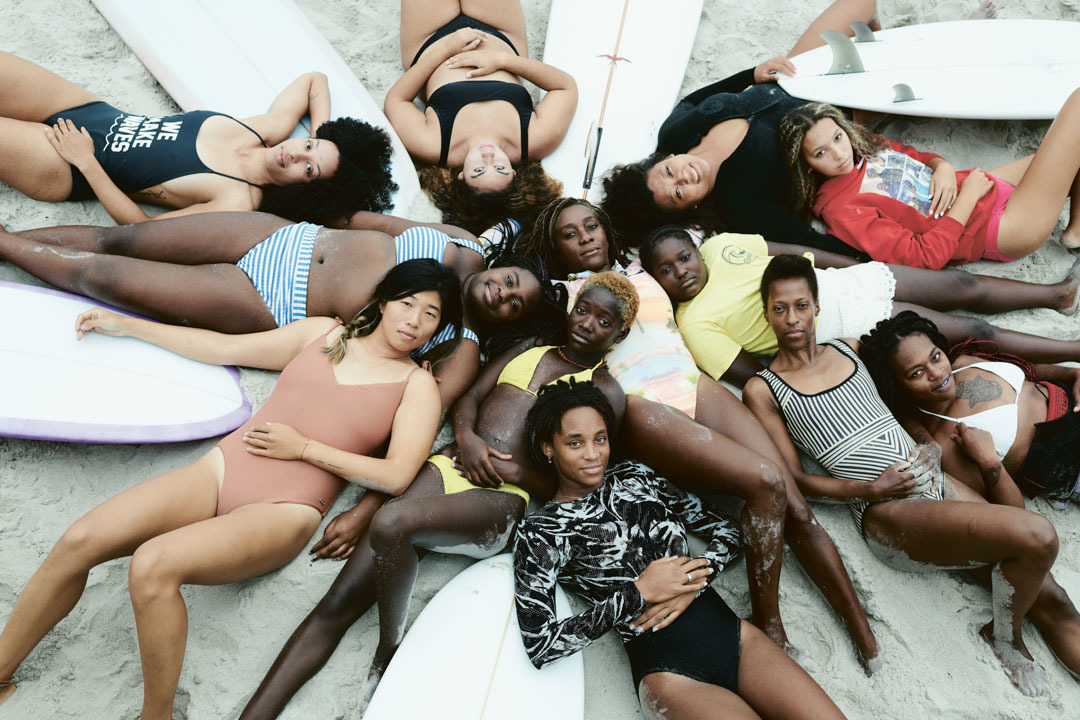
Are there local or specific issues impacting our ocean and coasts that are of special importance to you?
The volume of trash left on LA beaches is completely unnecessary and leaves me reeling! Sometimes it feels like we’ve completely and utterly lost our connection to the world, to each other. This is just the tip of the iceberg in terms of the work that is required - and I understand that many feel like they can’t make much of a change on an individual level, but it’s simply not true in this case - seriously, pick up your crap!
Are there any habits you’ve picked up to help care for the environment or reduce your own footprint that you would recommend to others?
As a family, we are all consuming less and all of our decisions to buy “stuff” is more conscious - what’s the packaging, how long will it last, what happens when we’re done with it, do we really need it” And then there’s simpler tactics - we each have our own bamboo cutlery and steel water bottles that we carry around with us always. The kids know to ask for glass cups, not plastic, when eating out. We store food in the fridge in recycled glass jars instead of using plastic film. When it’s really dry, we capture shower water in buckets to water our plants. A little late to the game, but we’re learning how to compost this summer and loving it! And when I’m surfing and I see plastic floating in the water, I stuff it in the front flap of my wetsuit or up the sleeve and then throw it in the trash when I get out.
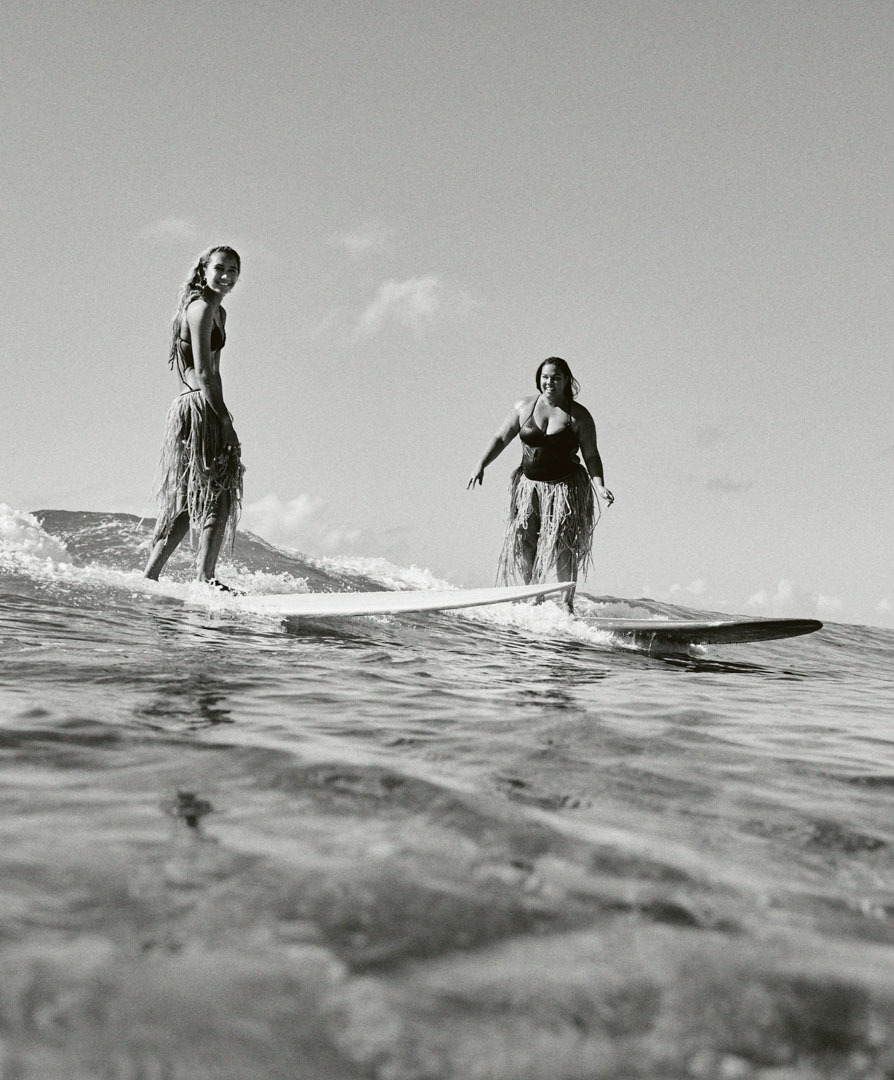
How do you envision the role of individuals in the larger movement to protect our ocean and coasts?
I think post-peak pandemic, the world has become even busier, schedules overloaded and there’s a general feeling of overwhelm. At the simplest level we can reduce our household carbon footprints, vote, donate, protest like hell and sit in the discomfort of asking ourselves some hard questions - what do I stand for? What am I willing to sacrifice? What kind of world do I want to leave my children? And perhaps there’s also a way to join the movement doing something you really love using your own skill sets and passions so that it feels enjoyable and not too much like work or “another thing” on the schedule.
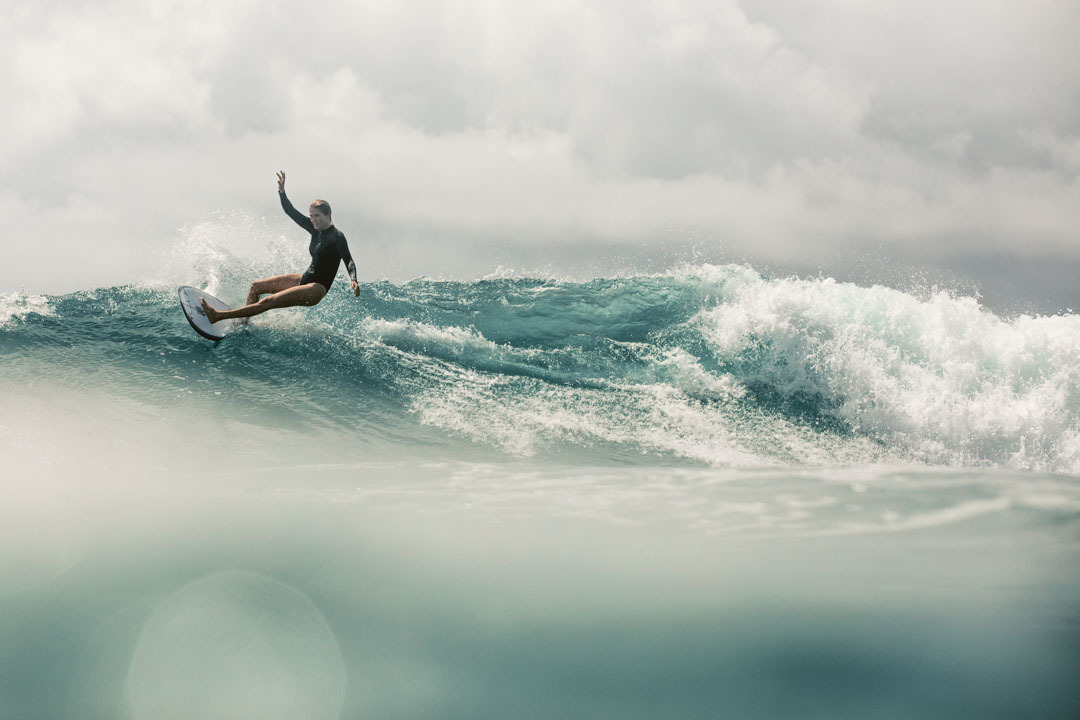
Our sincere thanks to Lara for spending this time with us, and for supporting Surfrider through sales of Women Making Waves!
Women Making Waves is available for purchase now.